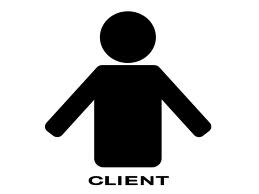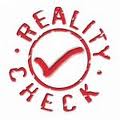I have a confession to make, I’m an observer. Much like the majority of us in this field, I observe others’ behaviors, and notice patterns that creep up over time. One of the recent patterns that I have noticed is the lack of job satisfaction in the UX field specifically with people that are new and have finally landed their first “real” UX job (I’ve assumed this to mean that they have a title like UX Designer, Information Architect, Interaction Designer, etc). Over and over again I have seen people excited to be in UX, and then deflated at the reality of what this means in their actual roles. These professionals are expecting to jump into a role where they are designing solutions based on the user research that they conduct, and the analysis that comes out of that user research (i.e. persona creation, scenario creation, etc). However, more often than not, the role they find themselves in is less about observing behavior, doing research, analyzing research and designing based off what we find out about the user, and more about designing something really quickly, throwing that into a wireframe, all without user input, so that we can get something over to the client.
From this huge letdown, comes an immense amount of disheartenment and confusion. People are left feeling unsure if UX is really for them. They begin to wonder things like ‘when do we get to do design studio?’, ‘when do we set up user interviews?’, ‘will we ever test this with users?’, ‘how about bodystorming, when do we get to do that?’, and… well you get the point. Basically they want to know when they get to do all the cool stuff that everyone is always writing and talking about. Honestly, this is not too far off from what some of us long time UXers think about in our own roles. And the problem, with never being able to actually do the fun UX stuff is that, well, nobody wants to be in UX anymore. The profession is not a reflection of the education around it, and becomes a sort of farce. People are left out in the cold wondering which way to turn, and our users receive less and less of the representation than they deserve.
How do we bring the gap between people’s expectations of becoming UXers and the real world implementation of the profession? I’m going to start by breaking down where these expectations come from. I think there are three distinct sources. First, the education that people receive both in a formal setting as well as a informal setting. Second, their perceptions of that education. Third, the way that the implementation of UX work is advertised.
Thus, one thing we could do is change the education in the UX field. We could stop teaching and lecturing about the way that UX should be, and begin to talk to people about what a UX job really is. This seems extreme, because if we aren’t talking about the way that UX should be, the profession would never evolve into something better. However, maybe we can stop ignoring what UX in an organization is today in our classrooms, lectures, and workshops. This would mean more people and companies being real about what user experience is in their organizations and why. This could help people new to the field understand that UX is not all roses, and that most of the time the business model is deliverables based (especially in client services) and thus deliverables will be created. Although this is a possible solution, I’m not sure it would work on its own.
Another option, is that we do nothing. Meaning, we let people make up their own minds about what they think UX, and if they want to believe that it’s all wondrous, let them. At some point people are responsible for setting their own expectations, and if one is not equipping themselves by asking the right questions in their interviews (i.e. How often do you do research? How do you test solutions with users? What are the chances I’ll be working in those roles?), then let them fall hard when they meet reality.
Another option would be to advertise the reality of the professional domain. Meaning, explaining that there are only so many jobs at IDEO, Frog, and the like that really deal with the cool stuff, and the chances of you getting one, at least as your first UX role, are pretty low. I think that it is important for us to recognize great experience design in this field. We need to examine it, understand it, and then apply it to our own professions. BUT, I think it is even more important to balance that recognition with reality. Once we are able to view UX through a real lense, only then will we be able to repair the broken pieces. Even people that work at these big firms are stuck doing wireframes, in fact many of them are. However, the really good ones are out talking about the exact opposite, thus, hiding this fact and throwing off expectations.
I think that it comes down to a mixture of these solutions including us admitting what UX really is in most organizations. This is the core of bridging the gap. The point being by admitting where we are we can move forward from it. But, by denying where we currently are, pretending we are in a way better place, and then making that better place our view of “reality”, we are doing a huge disservice to those that are looking to enter the field as well as to the field itself. Put simply, we need to start keeping it real. We need to admit to ourselves that our industry is flawed, and then admit to others the flaws that we see. We also need to spend more time solving those flaws in a real way. This means not just talking about a new way to do ideation, but also giving a case study of how to implement change in organizations, even from the lowest level, so that new ways to do ideation can take root. We need to start to look away from just the activities we want to do, but look to ways to bring those activities into every workplace, not just the really cool ones.
The intended outcome of bridging this gap is two fold. Not only will we keep new people passionate about the UX field, but more importantly we will be in a better place to evolve the UX field. By admitting our flaws we’ll be able to change them into something better, and move the UX field forward so that we can better utilize the huge amount of talent and value we can bring. Once we do this, only then can we really look at the ground breaking players and think, wow I could really use that methodology on this project I’m working on, otherwise, we are just looking through the looking glass.



